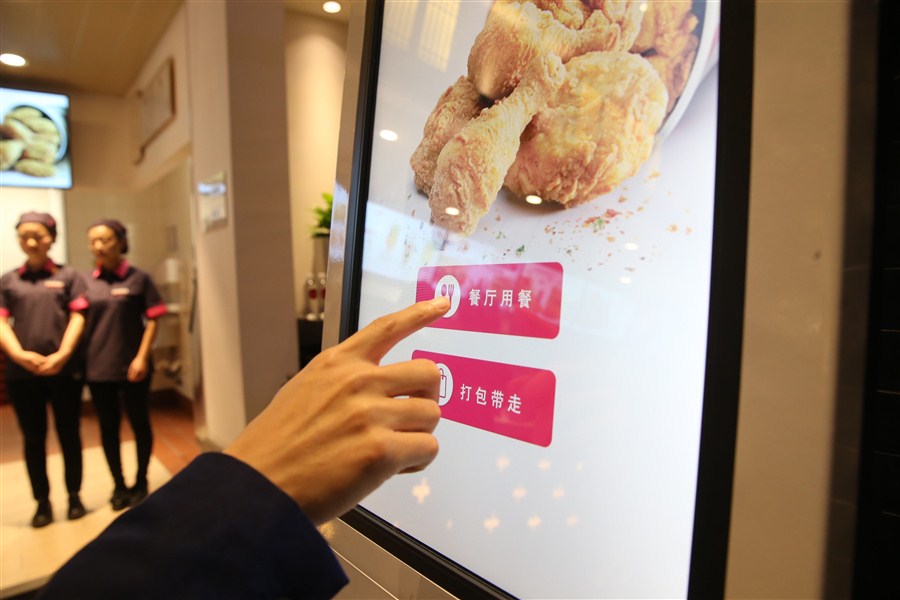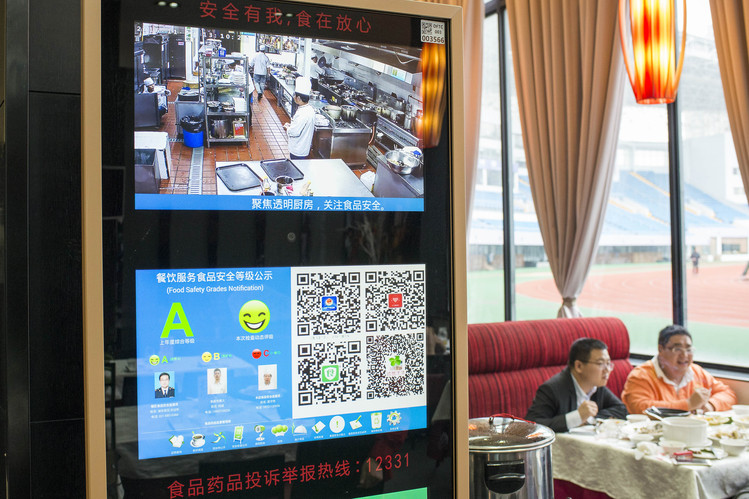KFC's “smart restaurant” in China guesses visitors' preferences

Technologies that use commercial companies to increase sales and optimize the process of interaction with customers are improving every day. A number of companies use modern technologies to analyze their work, increase the efficiency of delivery of goods, and optimize the budget. This applies to almost all areas - from car sales to restaurants. As for the latter, a joint project of KFC (its Chinese division) and telecommunications giant Baidu is currently being highlighted.
Baidu is known not only in China, but also abroad. She owns a number of Internet services, in addition, Baidu is developing unmanned vehicles, tools for delivering goods and other modern things. Cooperation with KFC is expressed in the provision of a fast-food network of access to its cognitive services. Previously, both companies launched a robot waiter in Shanghai. He could take orders from visitors, recognizing speech and sending an order to the kitchen. Now a new project has been launched, the purpose of which is to facilitate the hungry visitor the task of choosing dishes.
Baidu technologies are used to scan the faces of KFC visitors, to assess their mood and age. Based on all this information, Baidu’s neural network tries to offer visitors dishes that a particular visitor might like. That is, the goal of the project is to provide an individual approach to each visitor. If the client is a frequent KFC guest, the computer system analyzes the user's previous orders, “looks” at what the person ordered during previous visits, and offers a choice of dishes based on the preferences of this visitor.
The company explains that its system can offer a 20+ year old man a menu that includes chicken-hamburger, fried chicken wings and juice for lunch. But for a 50-year-old woman, the same system can offer cereal and soy milk for breakfast.
So far, such a technology has been introduced in only one restaurant from KFC, it is not a question of scaling up the technology, spreading this experience to other restaurants of the chain. But the running-in of the “predictive menu” continues, and if everything goes according to plan, perhaps the company will use Baidu technologies to implement them in its other fast-food outlets.
The technology itself is far from unique. For example, user analysis systems created by social and advertising networks (Google, Facebook, etc.) are much more technically advanced than the Baidu project and KFC. Such systems analyze not only the mood or age of the user, but also the user's estimated income, occupation, and marital status. Facebook, for example, evaluates the user's identity by 98 parameters.
Some media outlets draw attention to the fact that gathering information about visitors to a restaurant, and even more so, the subsequent analysis and storage of data is a violation of a person’s privacy. Perhaps this is so. However, in China, the issue of personal data security is not as reverent as in Europe, the USA and other regions.
In China, a major project is currently being implemented, the goal of which is to centrally collect data on Chinese citizens with the derivation of a trustworthiness rating. This rating will determine for the Chinese the possibility of gaining access to certain services and services, including education, travel, insurance and loans. If a person is noticed, for example, in an attempt to free travel on the subway, then his reliability rating falls and he (or she) cannot already take a loan from a bank.
The “social” rating of the Chinese is formed on the basis of an extremely wide set of data - from social status and usual characteristics such as height and weight to police drives, asocial behavior, good deeds, etc. The system is now working not only top management, but also the administration of the regions. It cannot be otherwise, since a system that can track 1.4 billion people is already complicated by default.

As for restaurants, in China they strive to improve the work of all catering establishments. A pilot project is underway in the city of Yangqing, where cameras are installed in the kitchens of restaurants and cafes. In the halls of catering points screens are installed, which shows the very kitchen of the institution, as well as the rating, the list of those responsible for the restaurant and the quality of the food prepared in it.
In general, cognitive technologies are developing very rapidly now. It is clear that the KFC and Baidu project is just the beginning. He is far from perfect. It can be assumed that in the future such systems will be installed in many cafes and restaurants. So far, the project initiators have said nothing about the distribution of predictive menu building systems at other KFC locations in China or other countries. I would also like to see the statistics of the "smart restaurant" - for example, how often the system correctly guesses the preferences of users.
